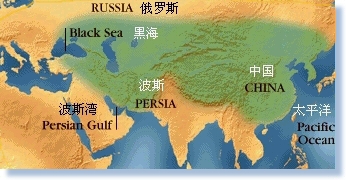Originally posted by Boshko
And Alexander the Great is horrifically over-rated, he had an excellent army given to him by his father that didn't have to fight much besides a disorganized low-morale led by a second-rate predender to an empire in decline. The greeks that handed the Persians defeats when the empire was at its height trump Alexander easily.
And Alexander the Great is horrifically over-rated, he had an excellent army given to him by his father that didn't have to fight much besides a disorganized low-morale led by a second-rate predender to an empire in decline. The greeks that handed the Persians defeats when the empire was at its height trump Alexander easily.
Strange but do you know any army that is inferior in all aspects even in moral and won a better army in all aspects? I don't.
And do you think that the Chengis Khan's army and Napoleon's army faced harder armies than the ones Alexander faced? I certainly don't think so.
Originally posted by Chris 62
No other military leader comes close, Alexander was no great stratagist, nor able tactician (his favorite tactic was a headlong cavalery charge into an enemie's flank, hardly noteworthy).
Brave and couragous, to be sure, but the greatest?
I don't believe so.
No other military leader comes close, Alexander was no great stratagist, nor able tactician (his favorite tactic was a headlong cavalery charge into an enemie's flank, hardly noteworthy).
Brave and couragous, to be sure, but the greatest?
I don't believe so.
Originally posted by Alexander's Horse
Aside from that he was also an evil destructive psychopath but that isn't the question here
Aside from that he was also an evil destructive psychopath but that isn't the question here


But he was just a child comperared with the destruction the rest empires had left behind before him or even after. You count how many cities Alexander destroyed but when you deal with other empires you simply count how many cities weren't destroyed

Having said that I give my vote to Alexander the Great followed by Chengis Khan as the greatest military leaders of all times.
Also I must refer to Cyrus, the founder of the first superpower of history, mostly his work, and to the answer Hannibal gave to Scipio Africanus when asked who considered the best general of the world: "Pyrrus first, Scipio Africanus second and himself third".




Comment